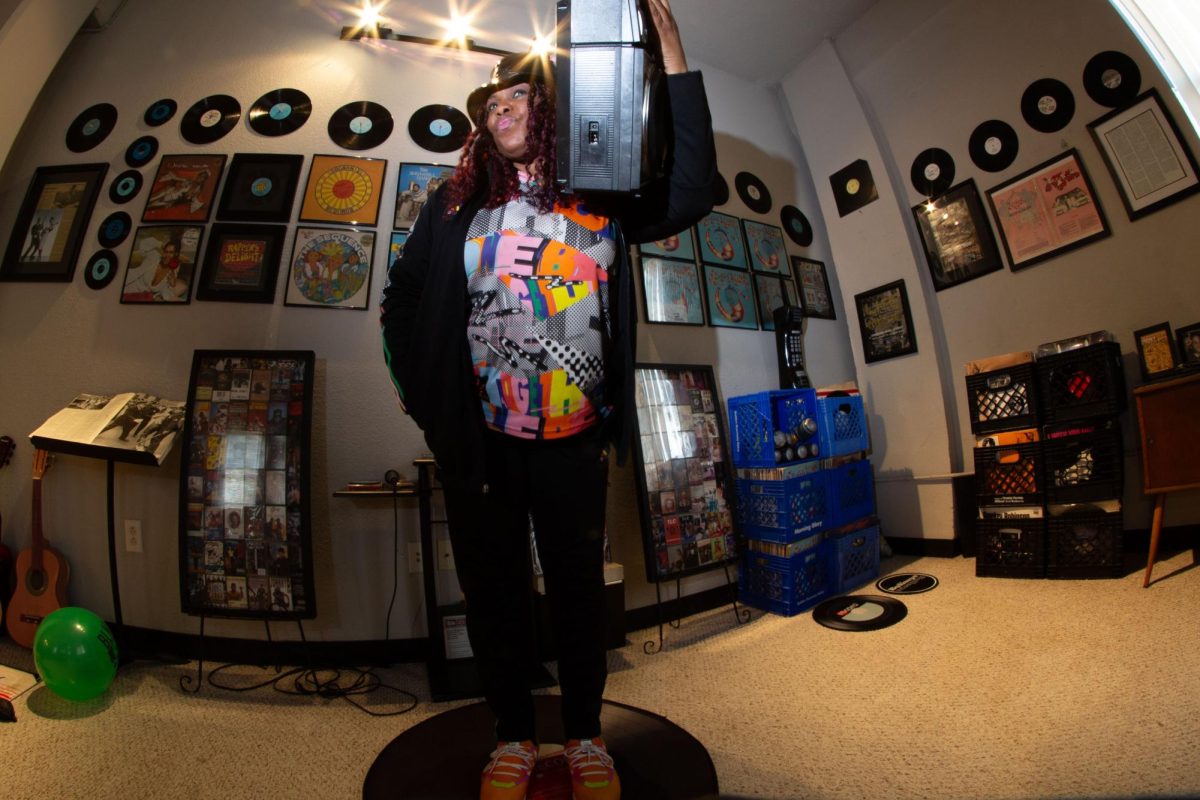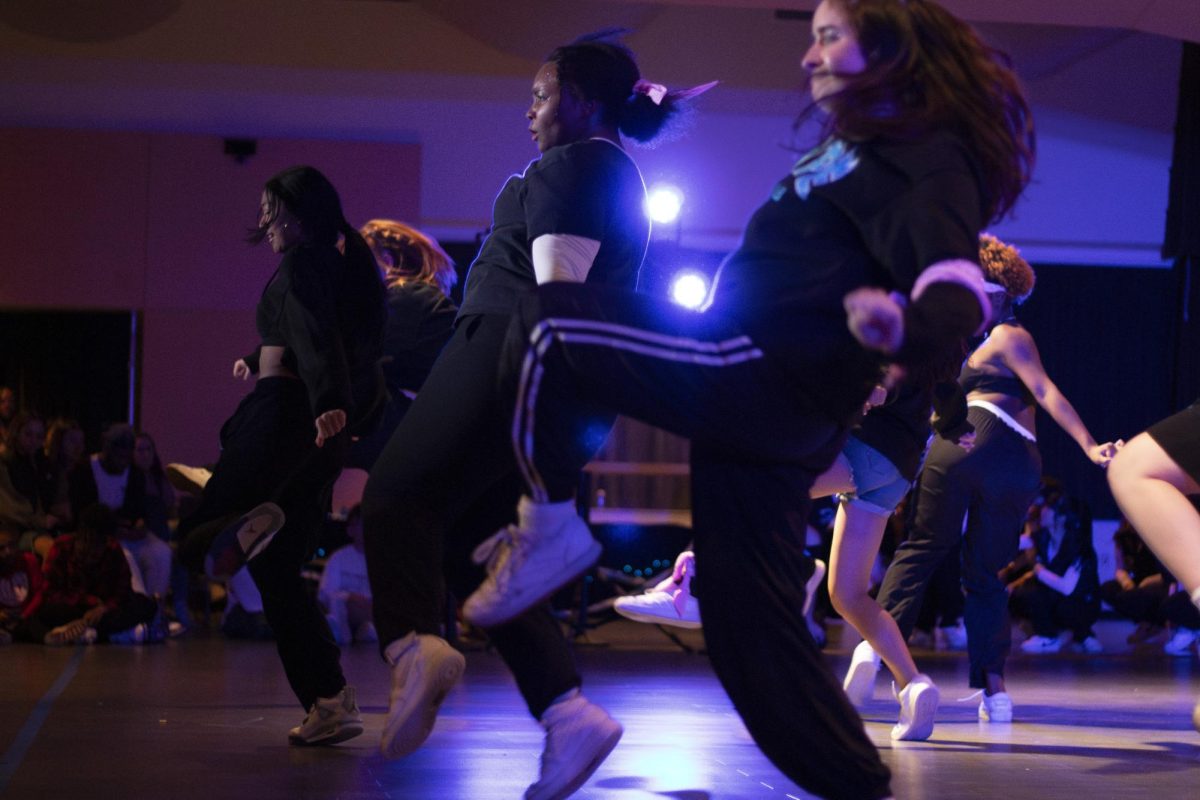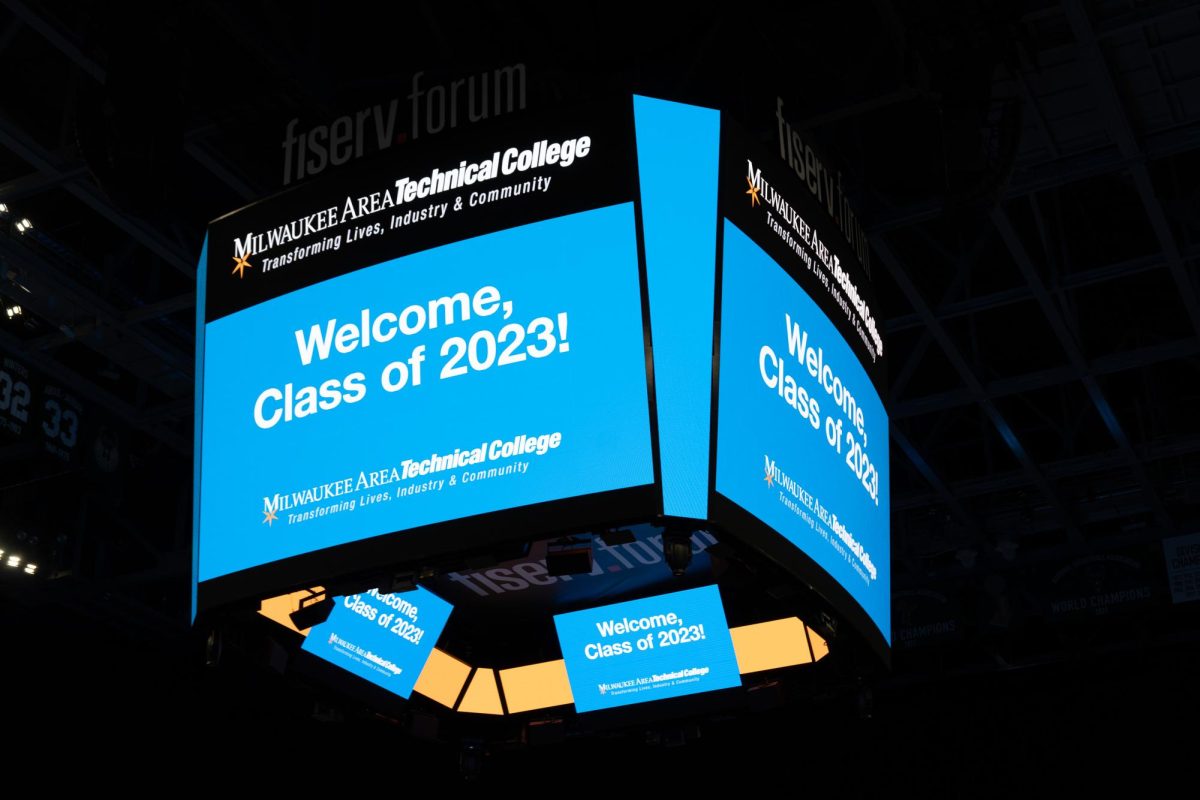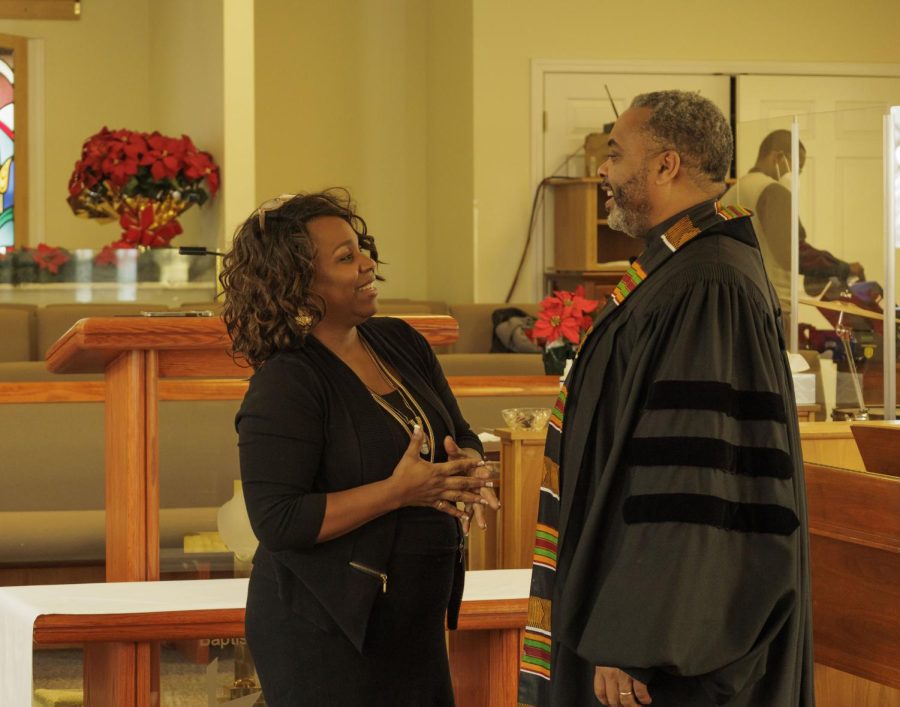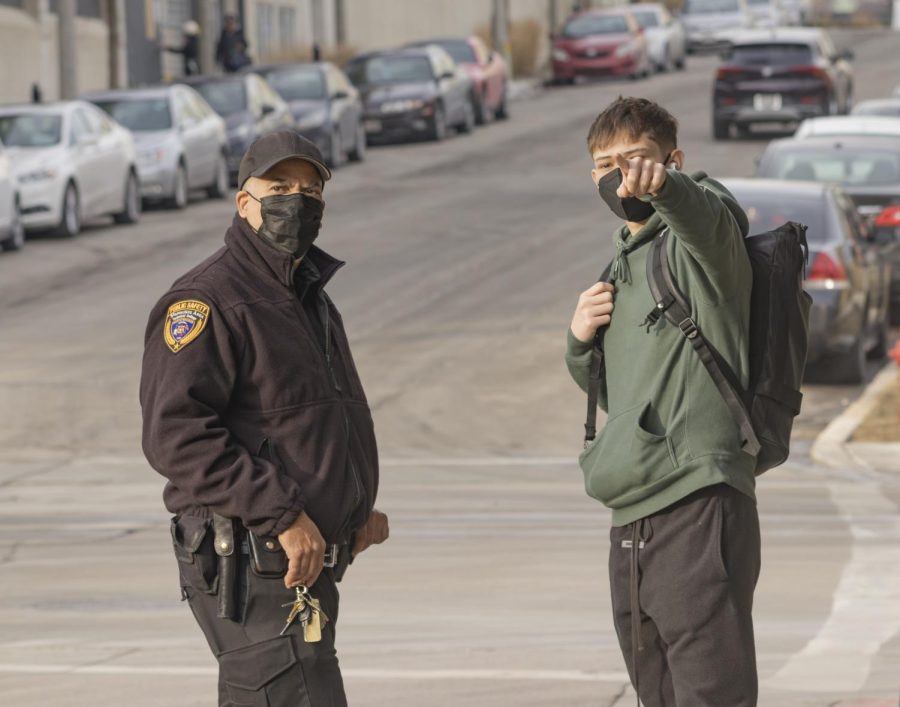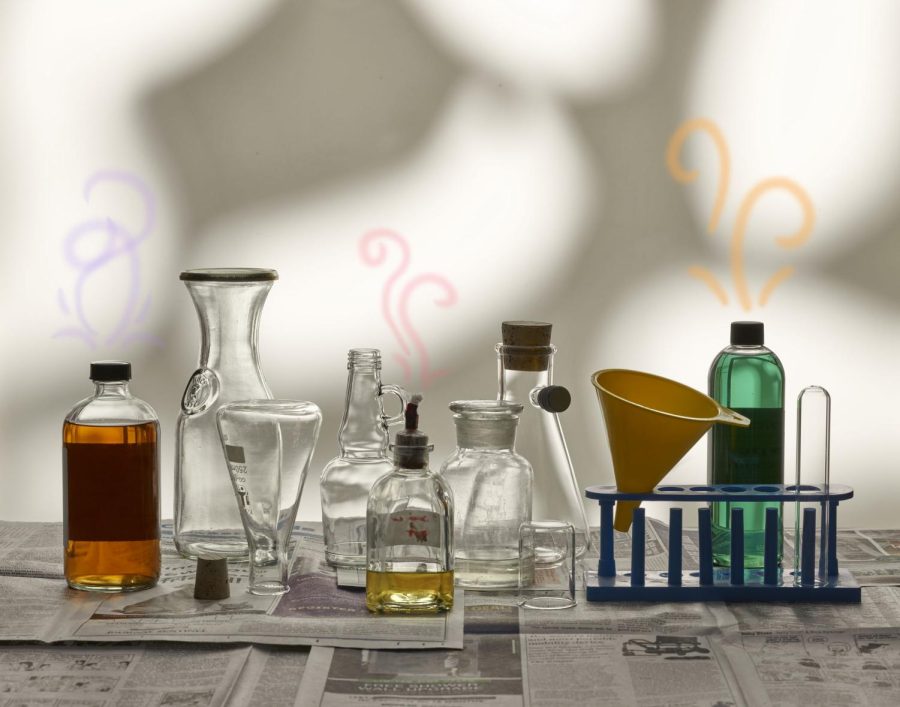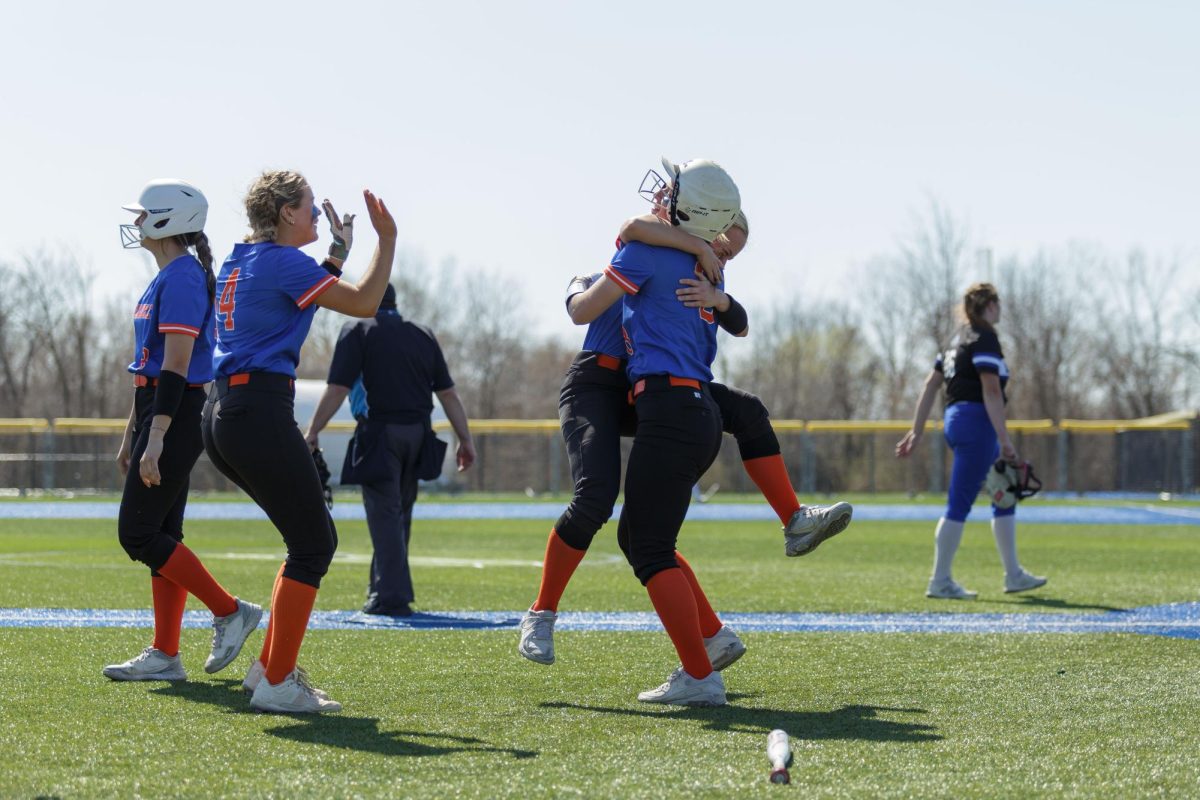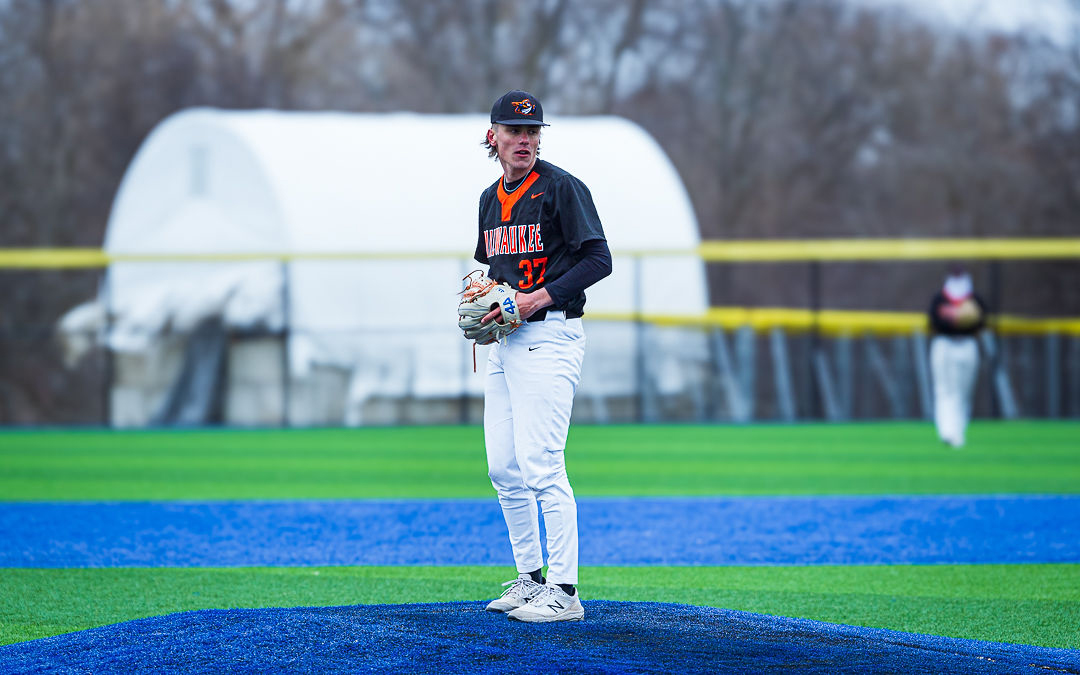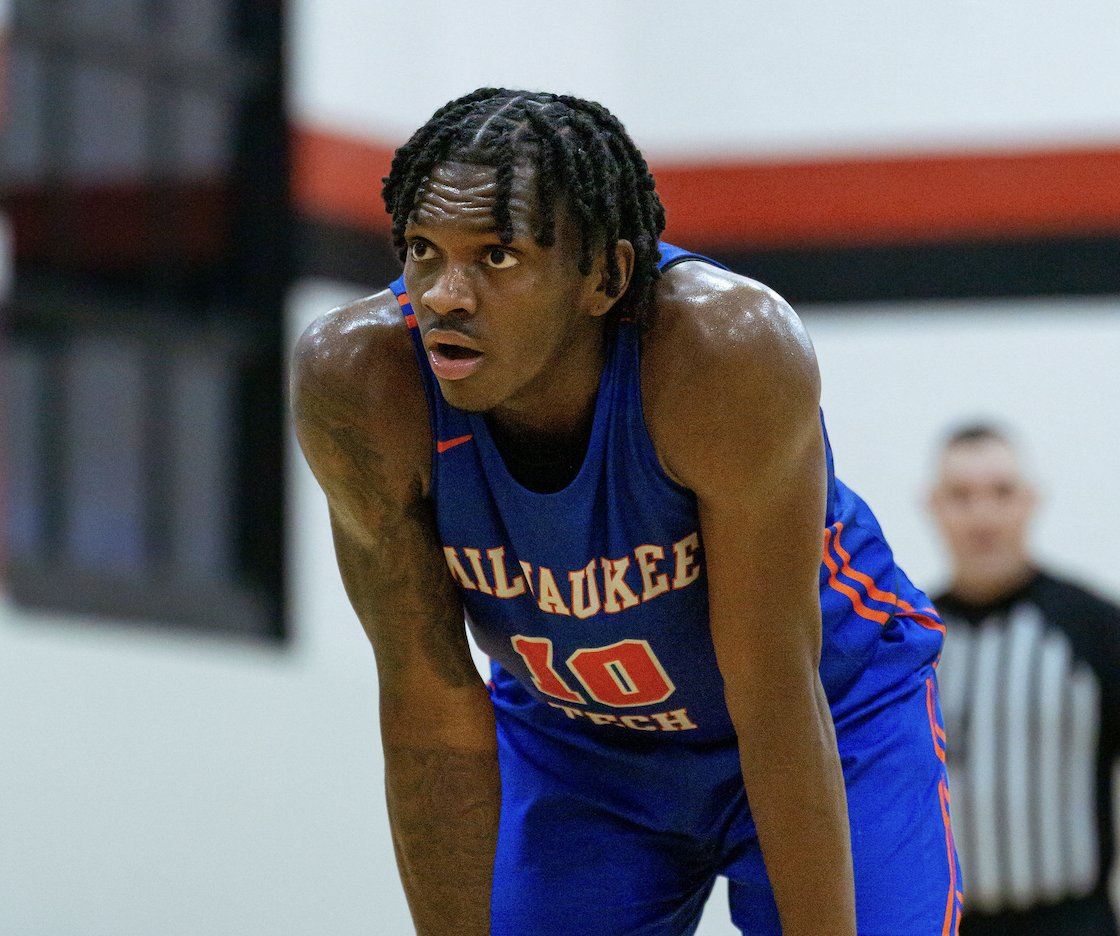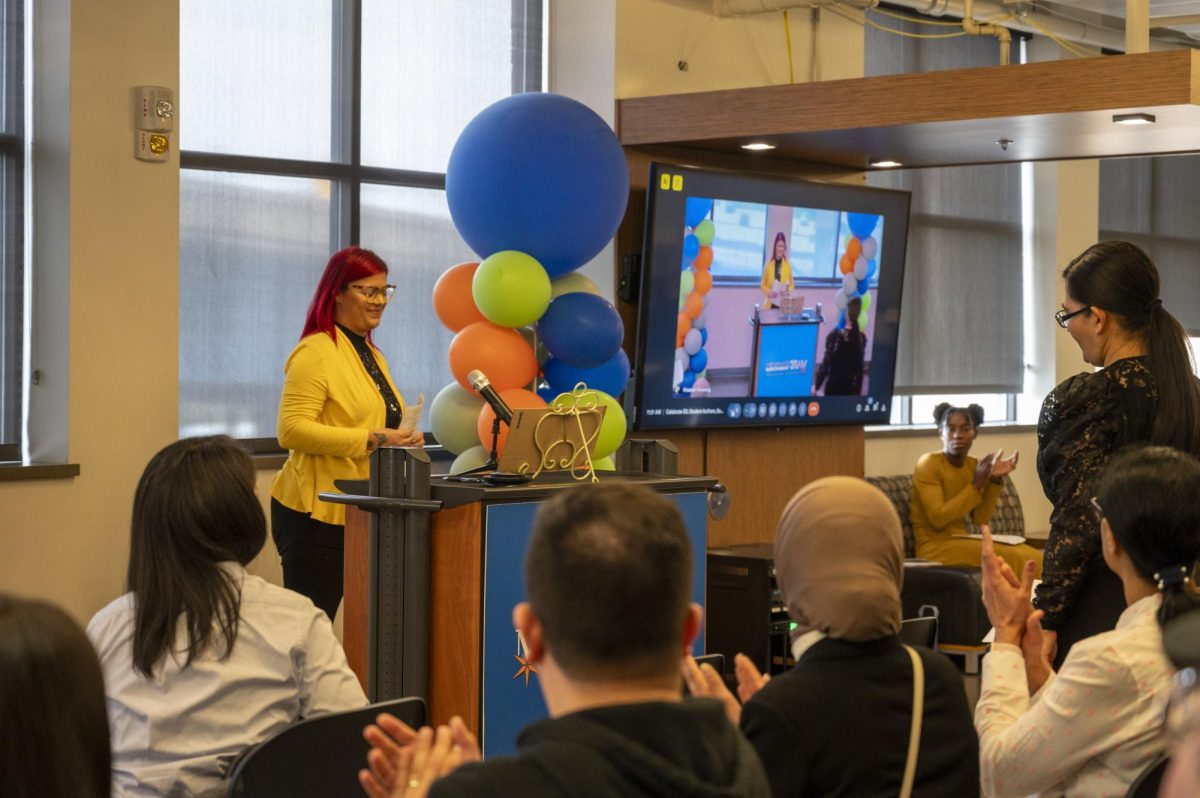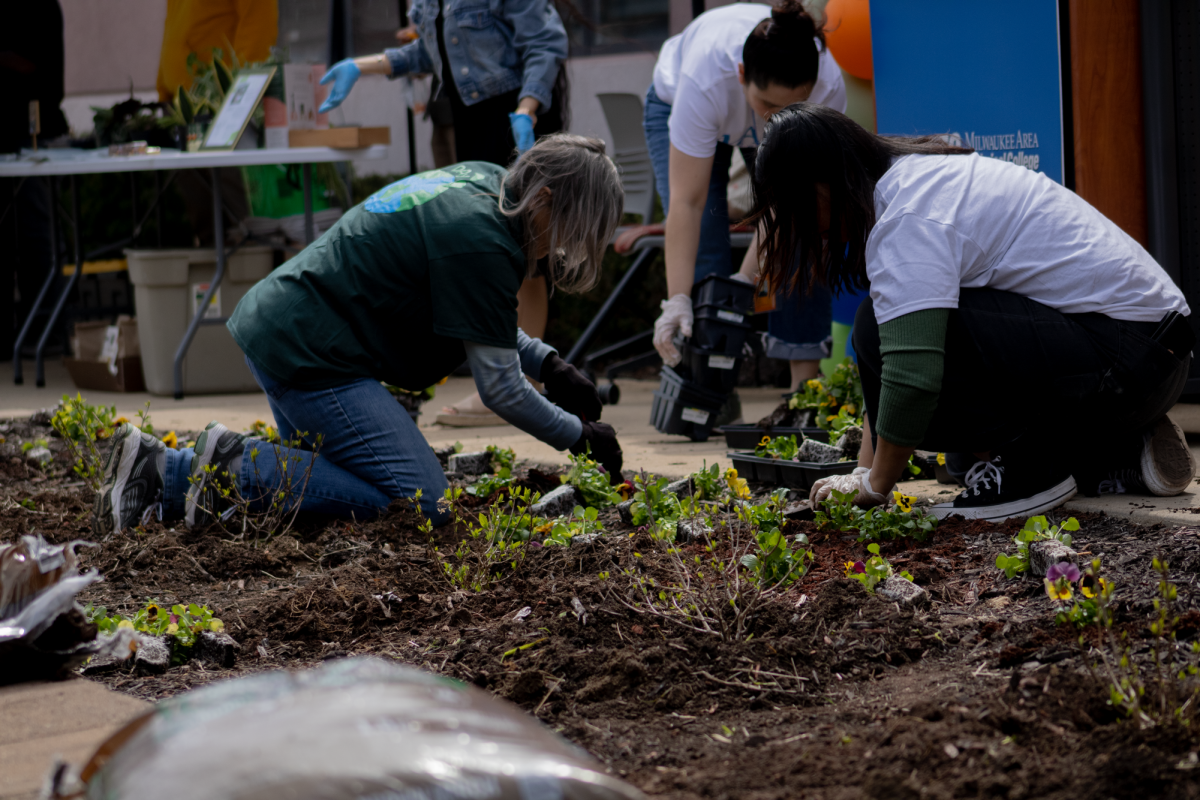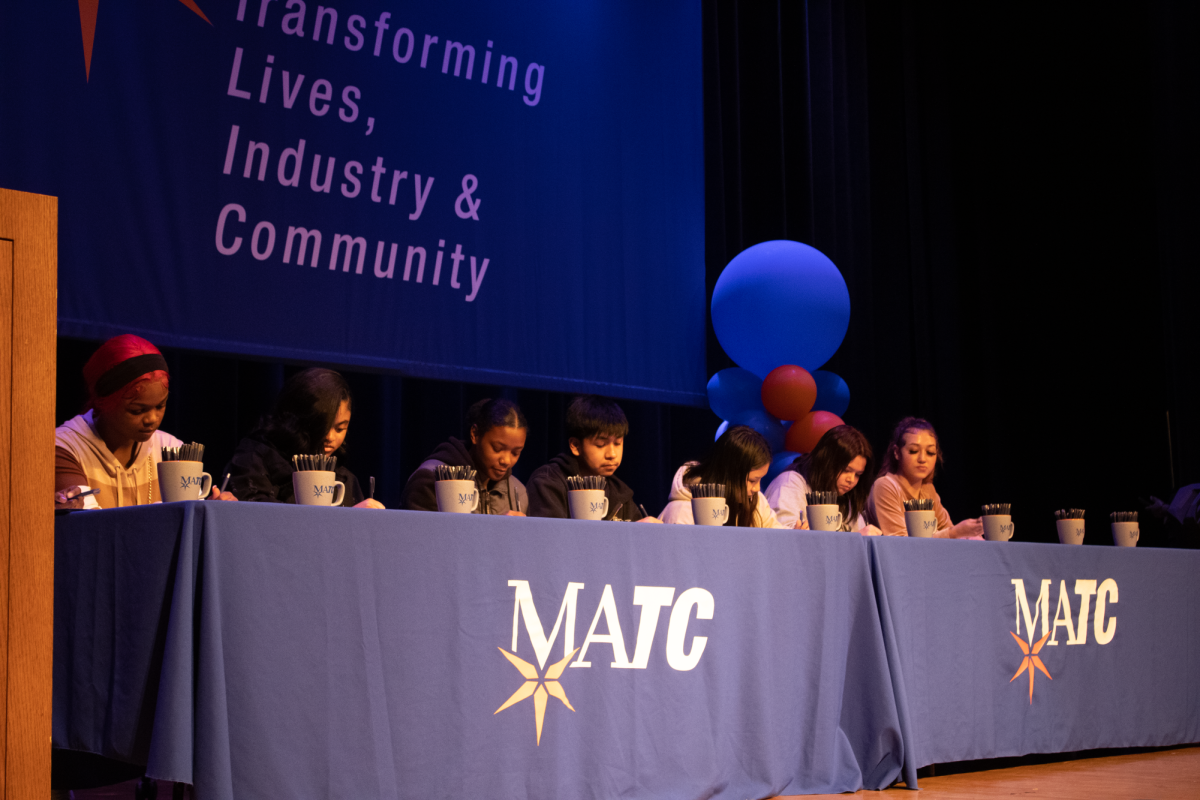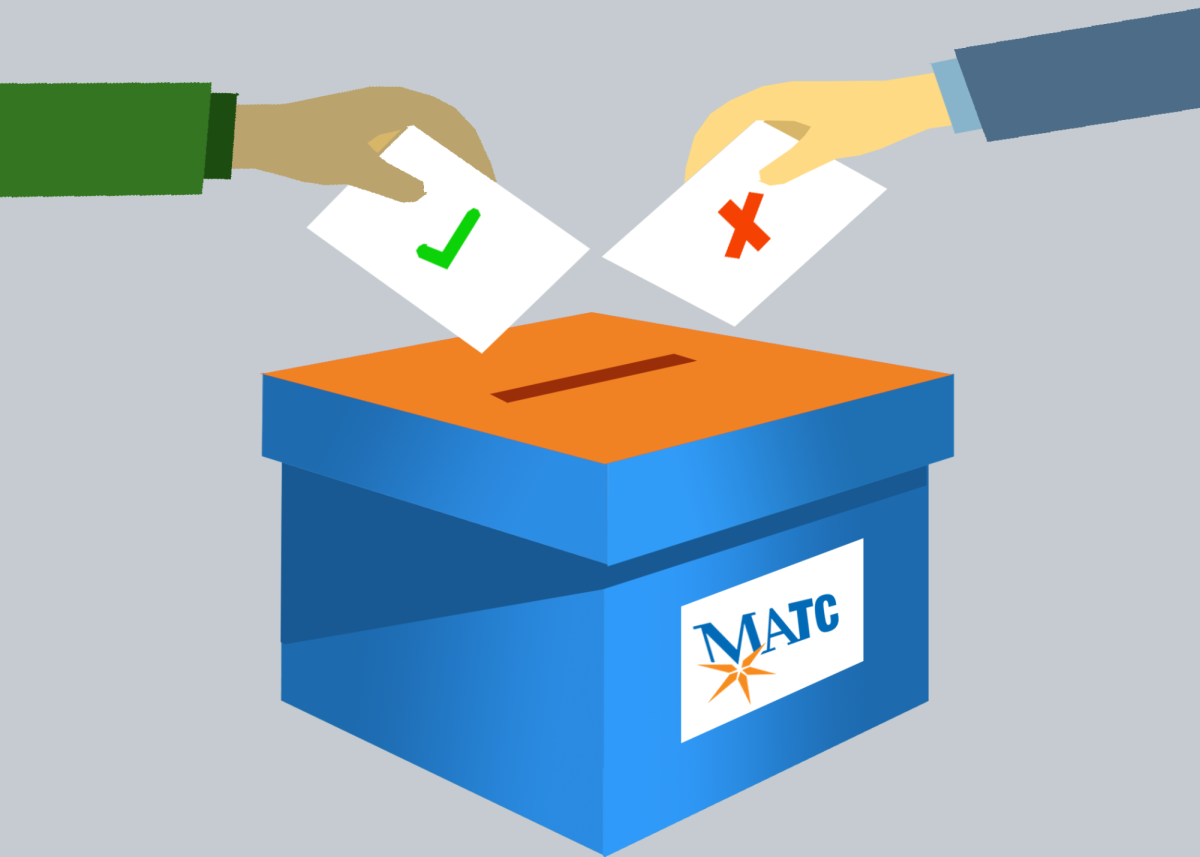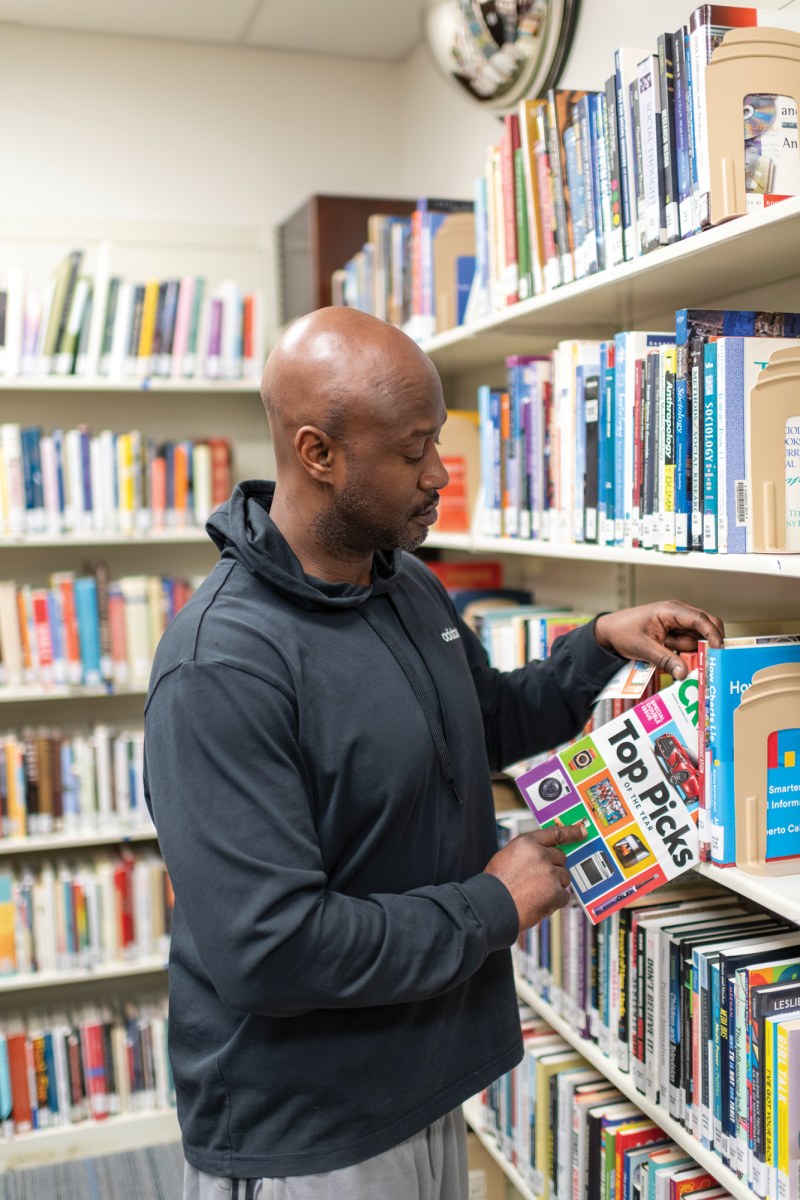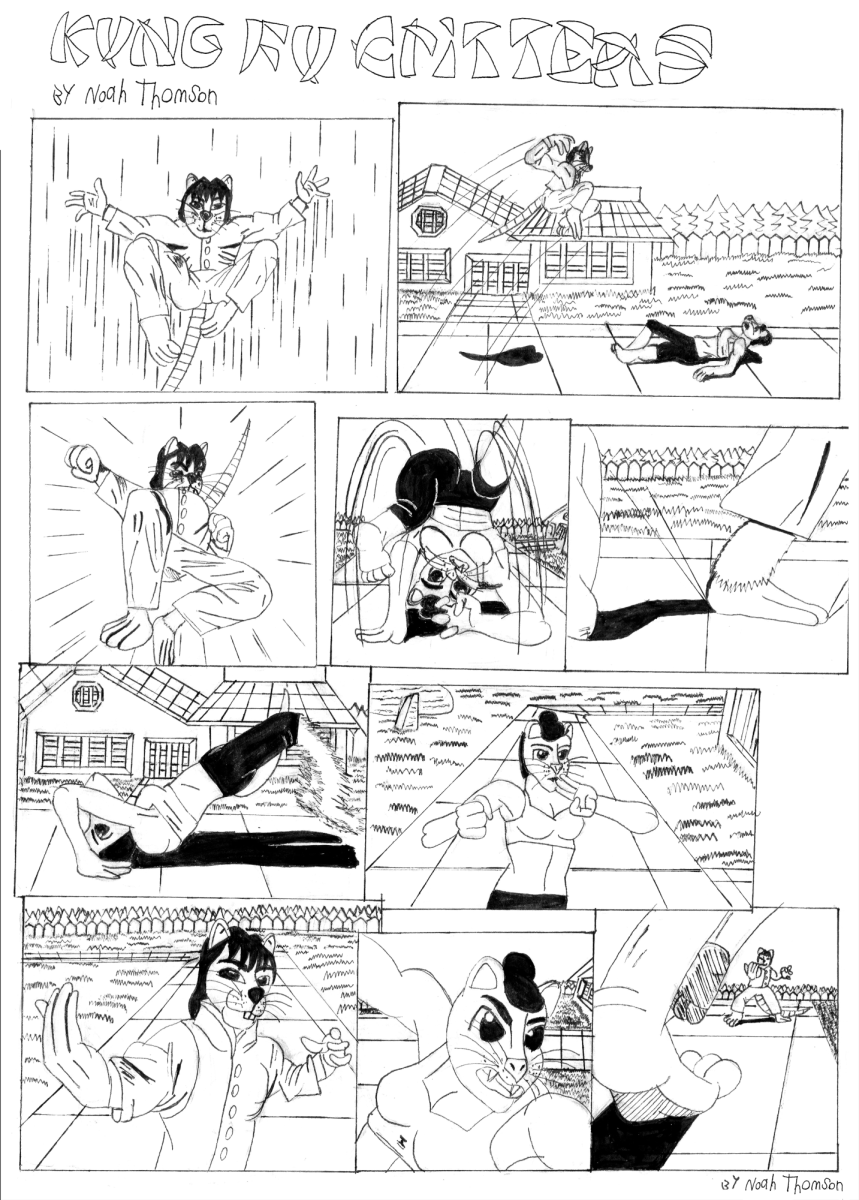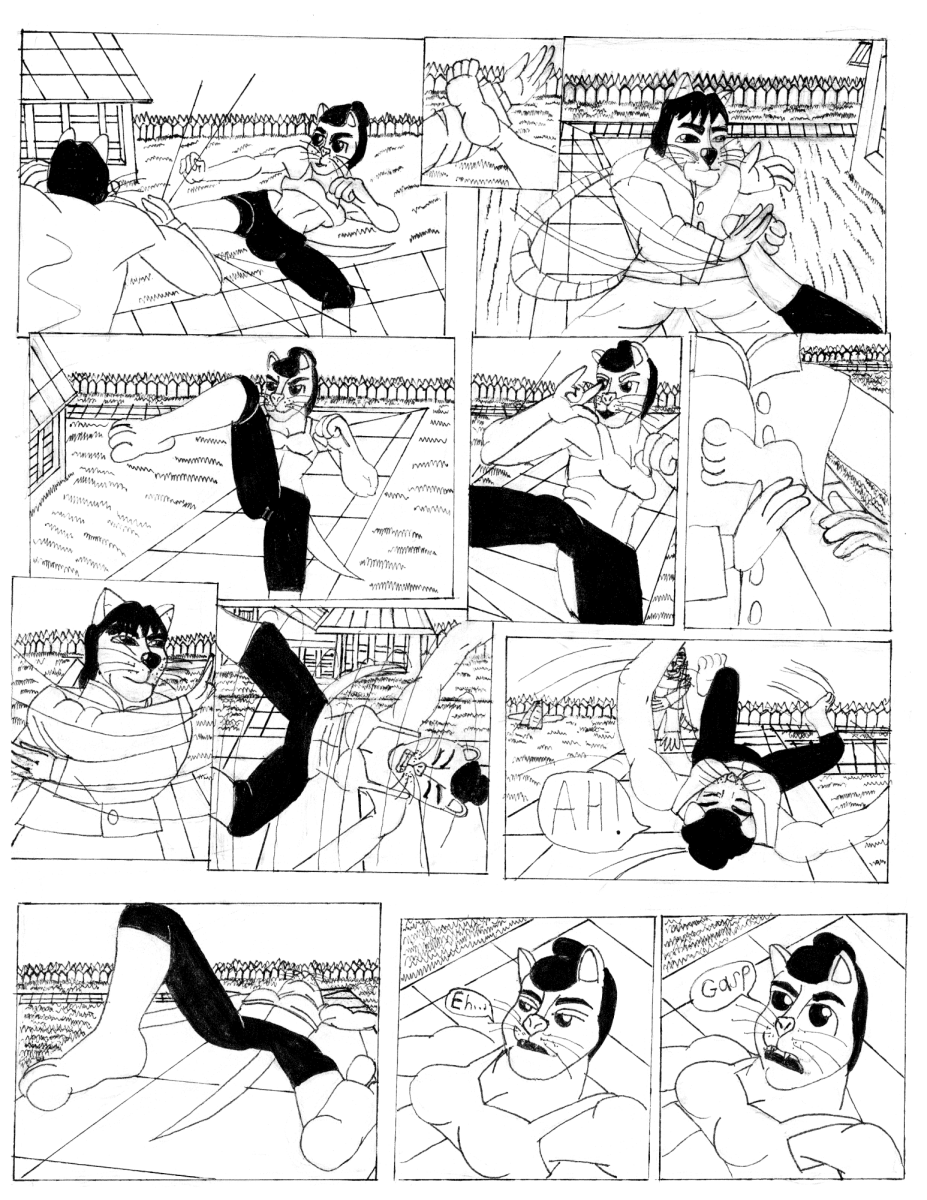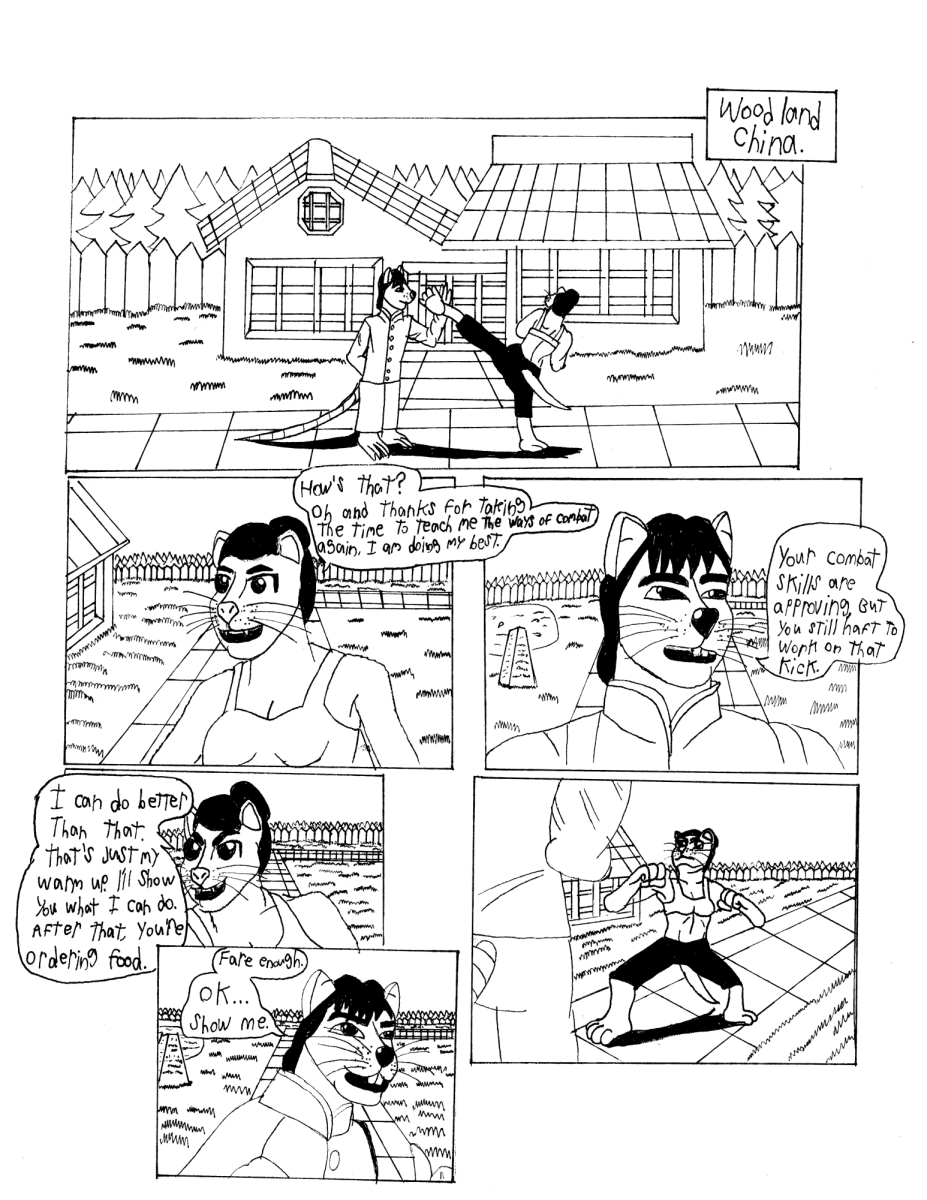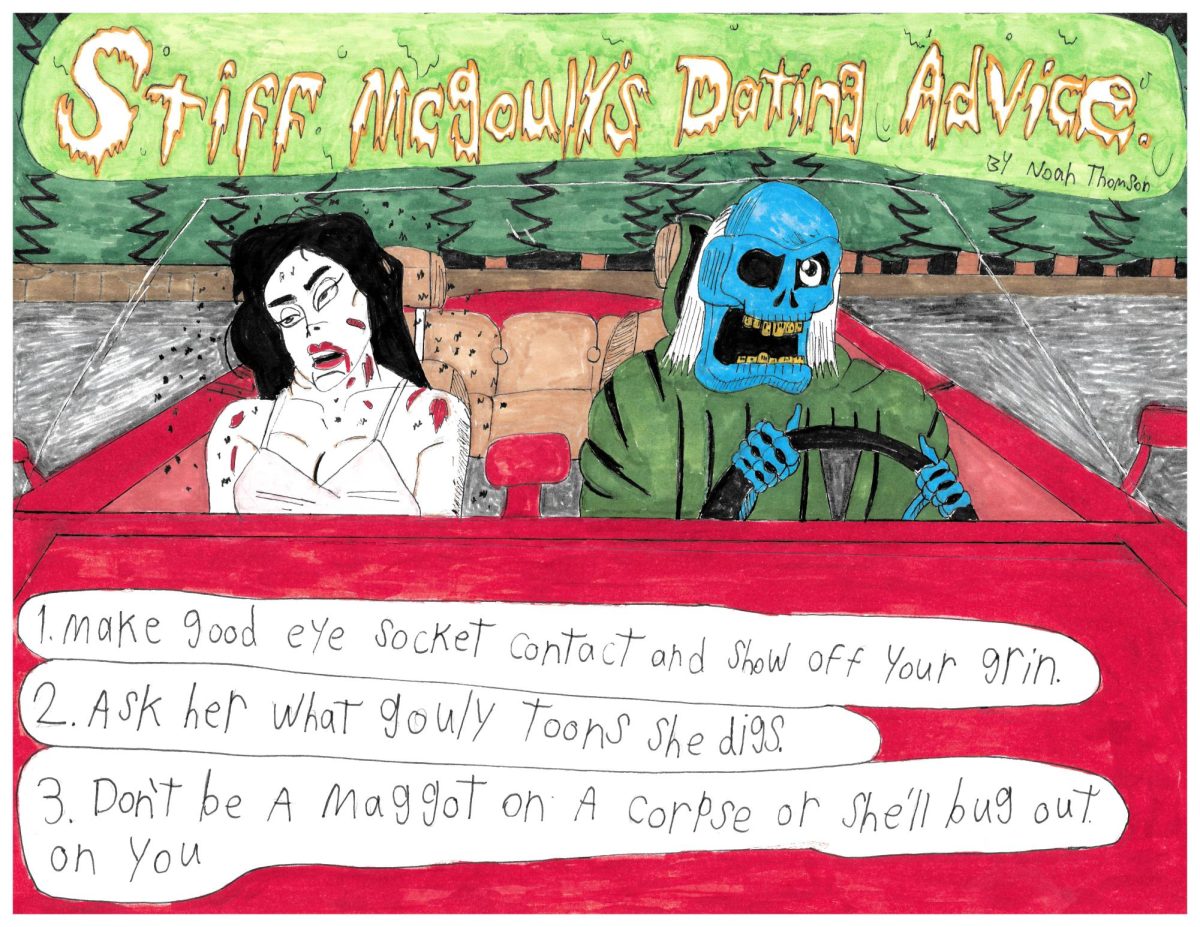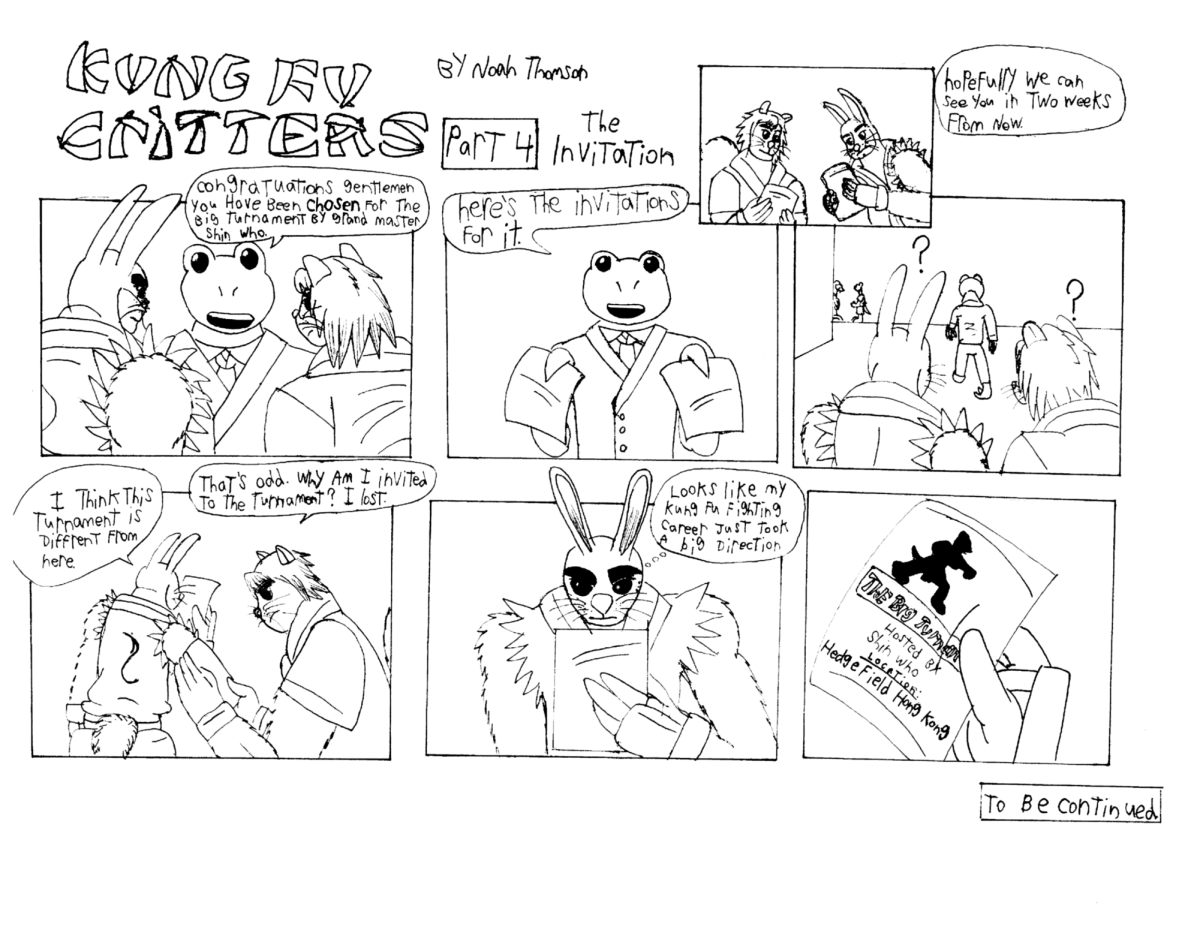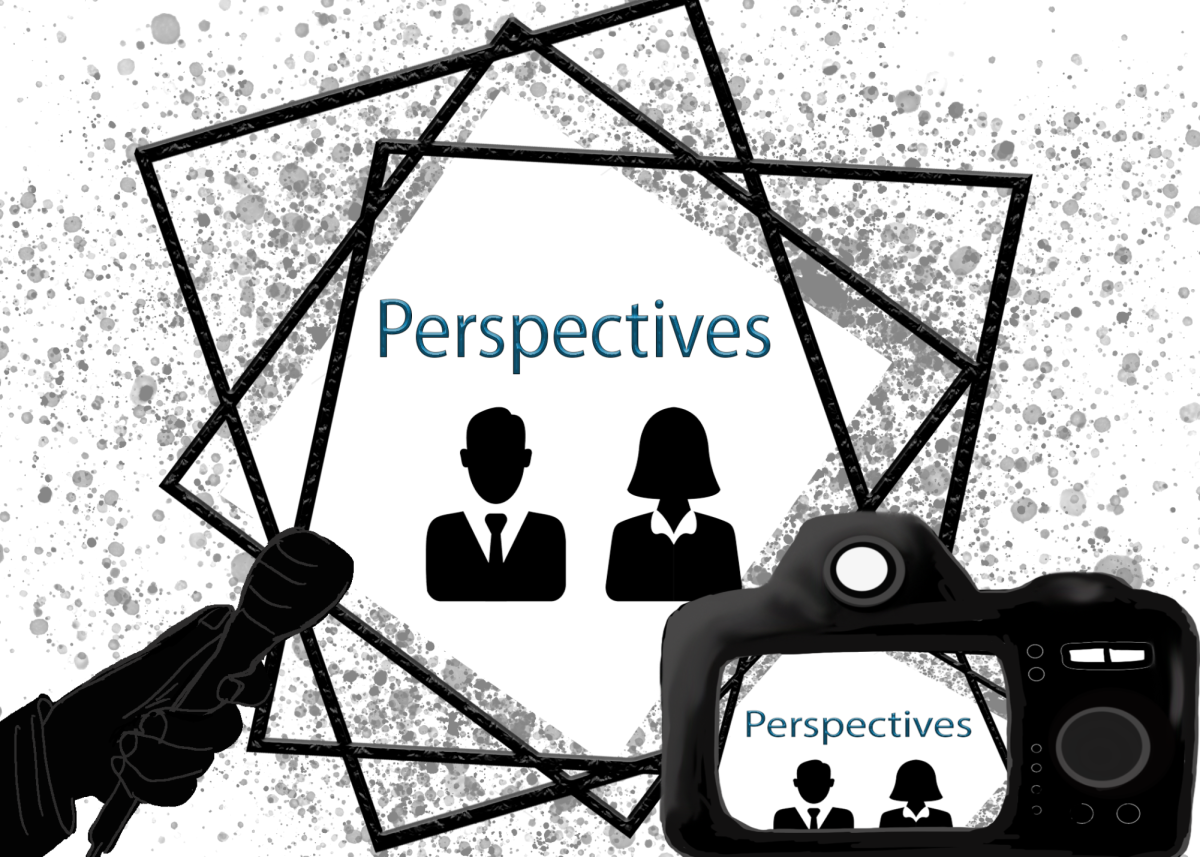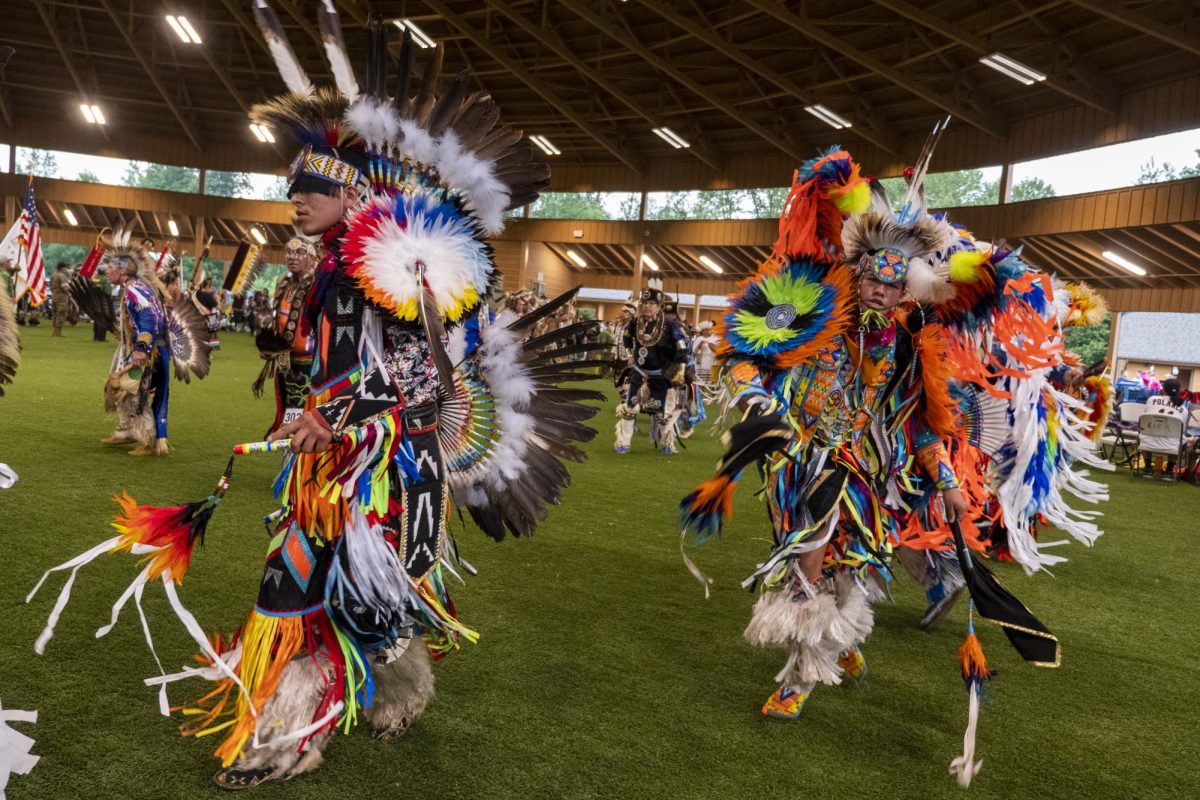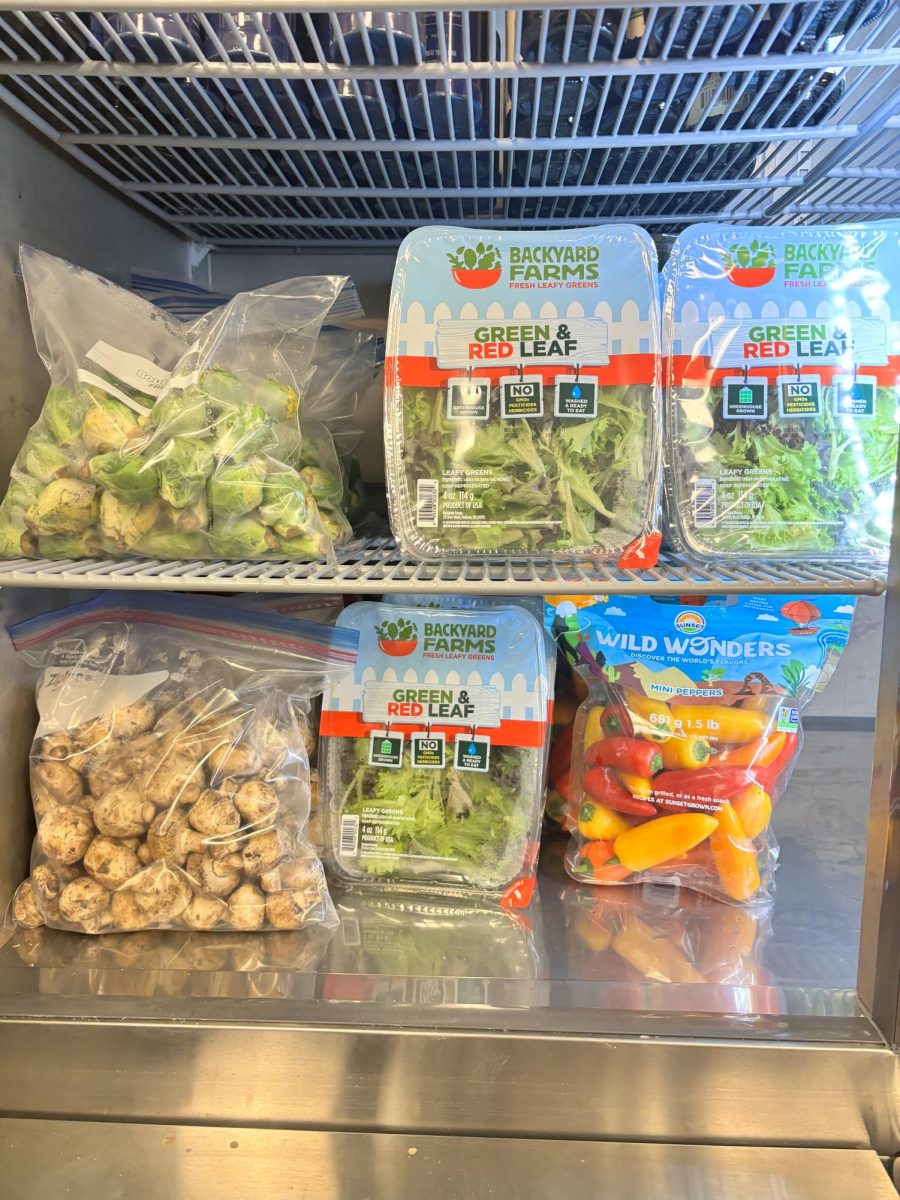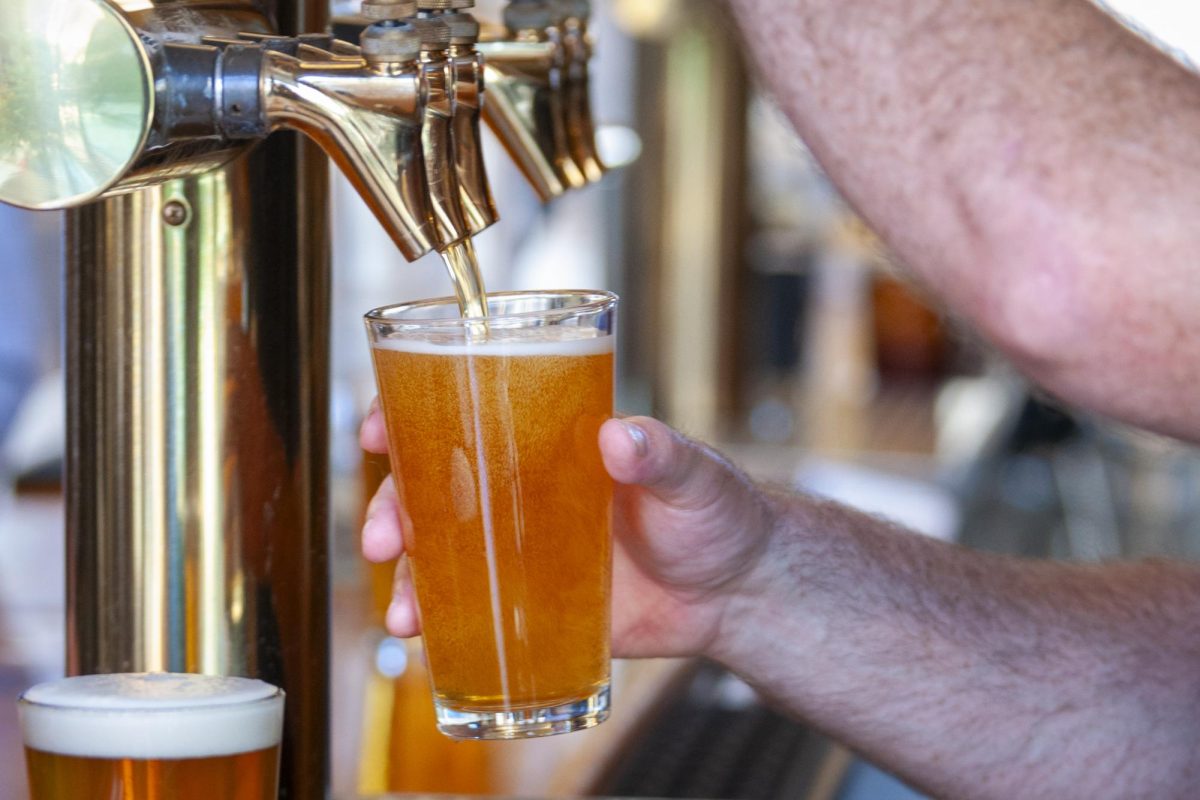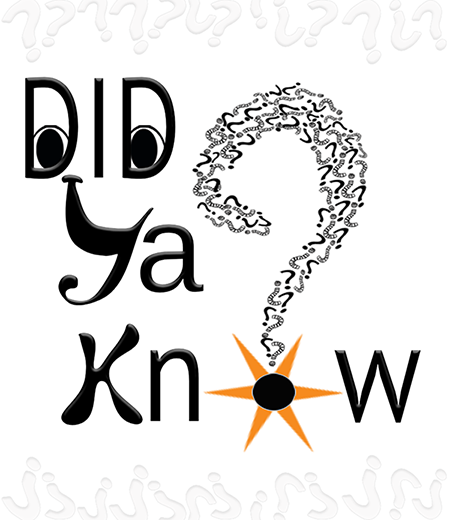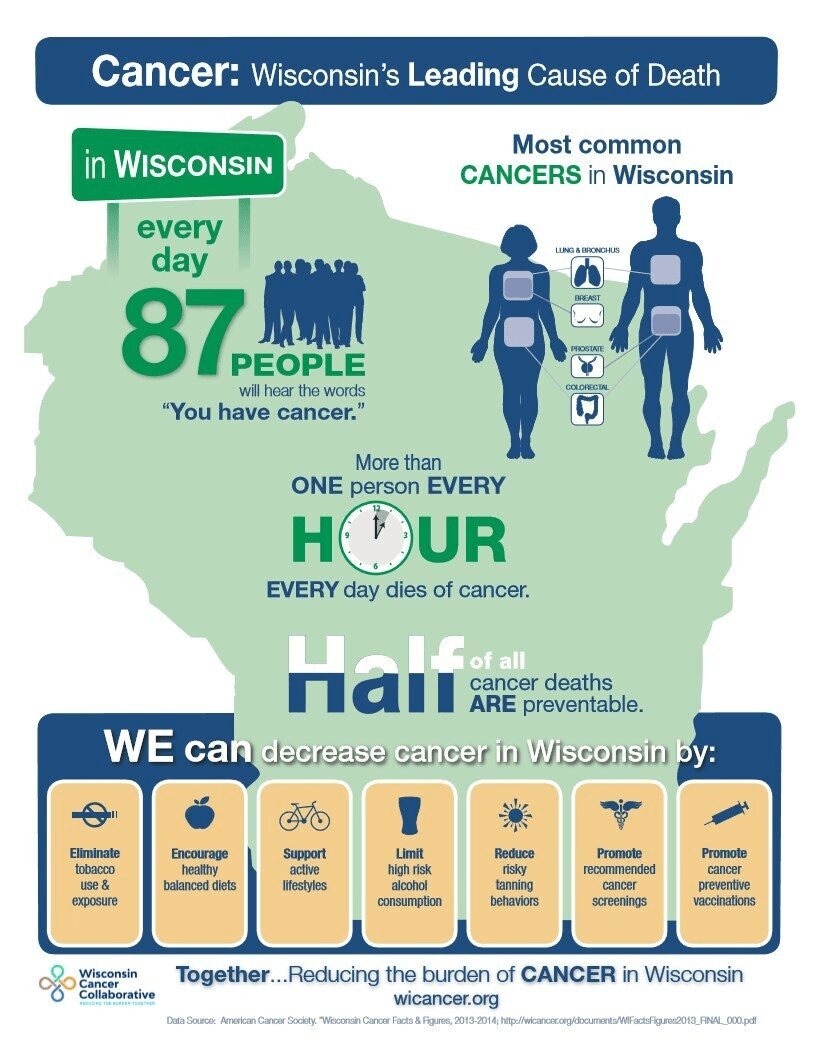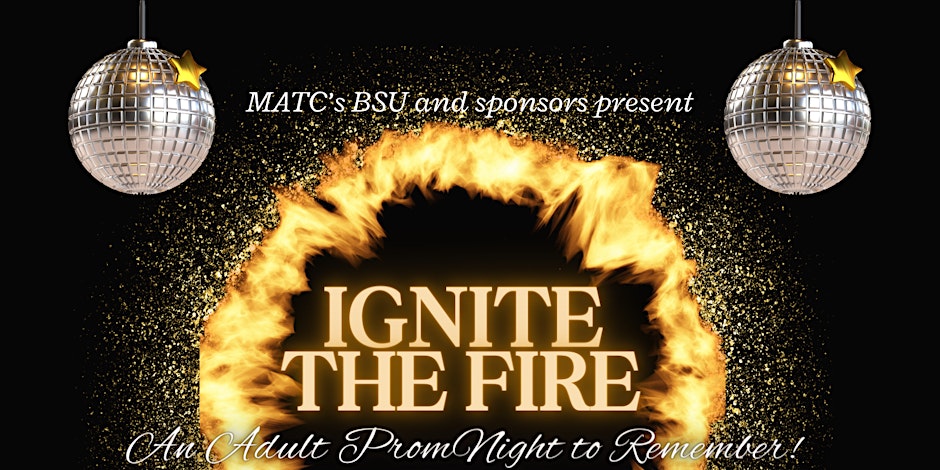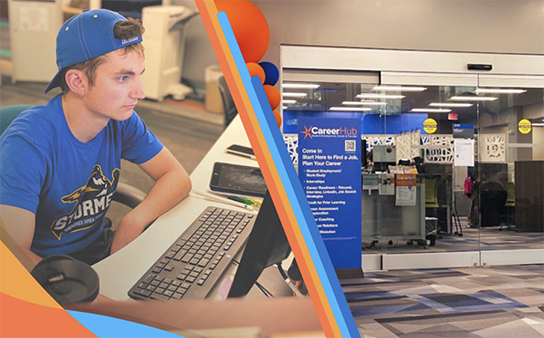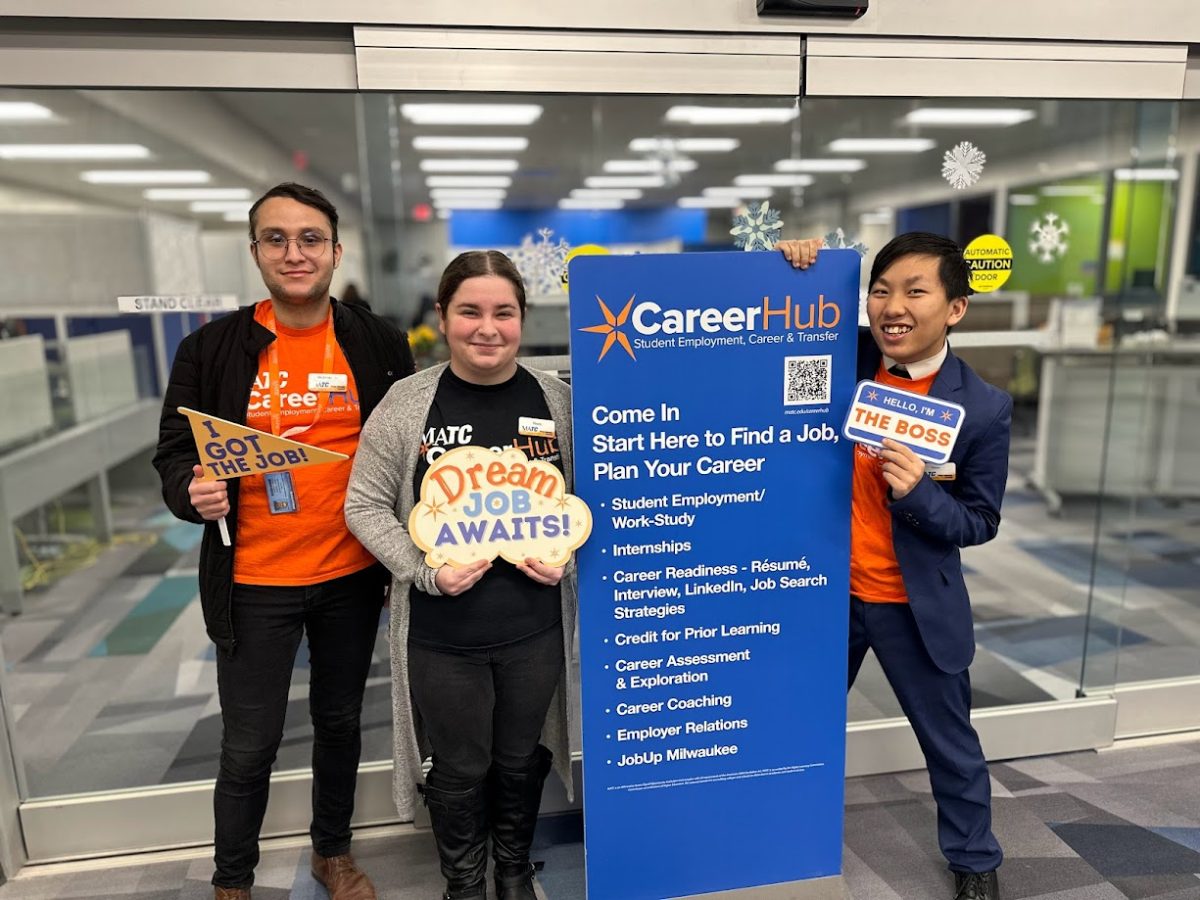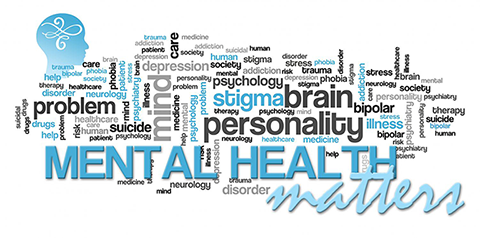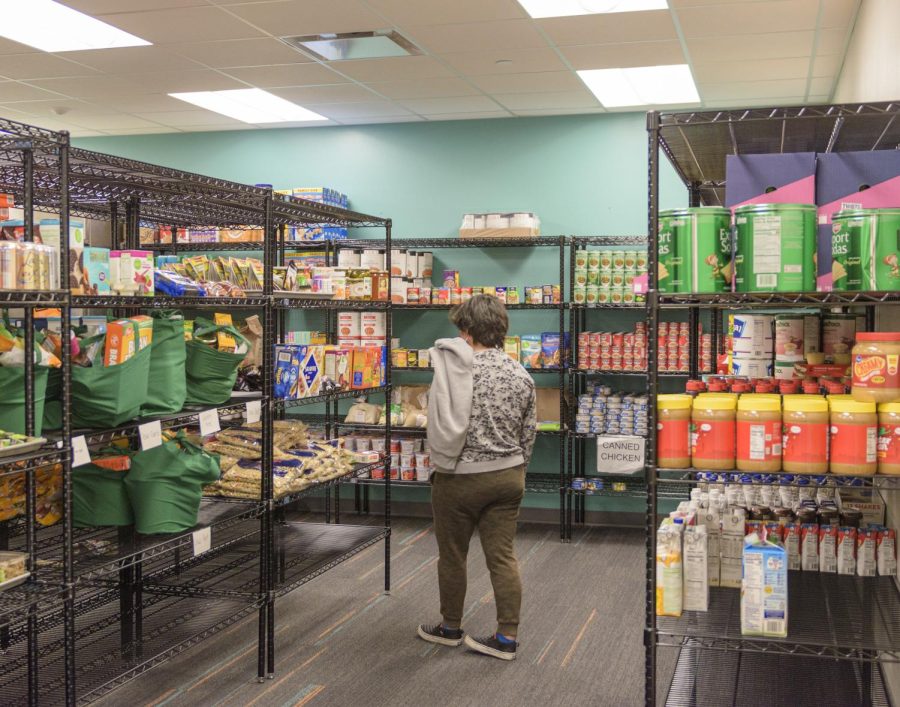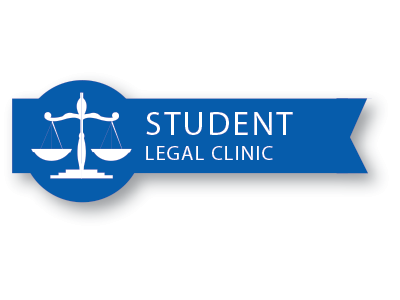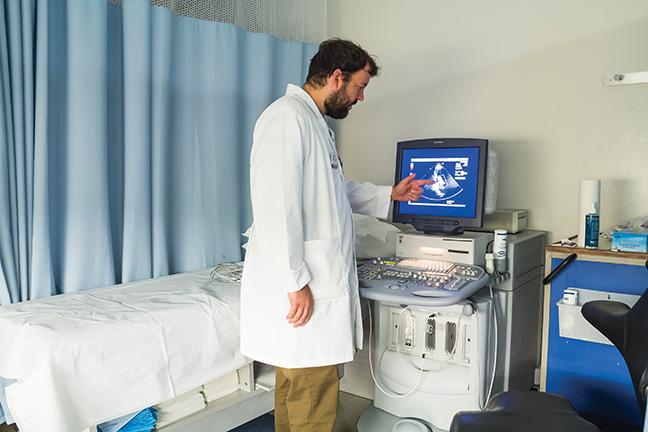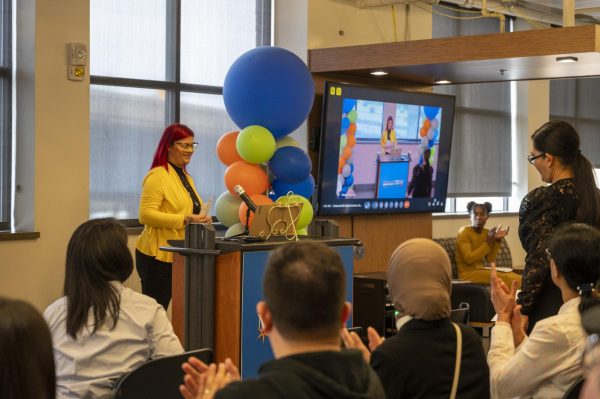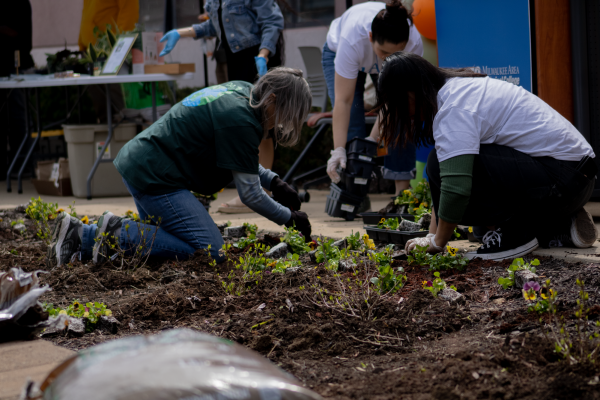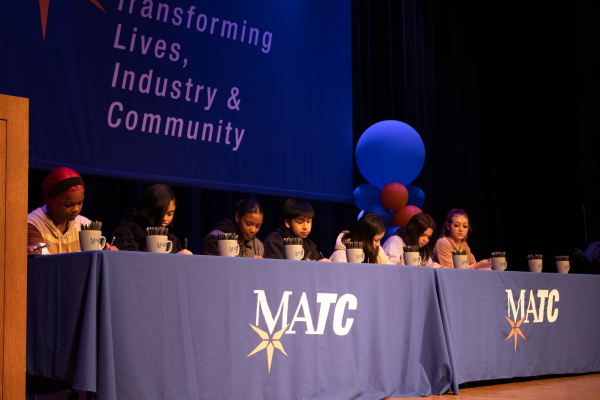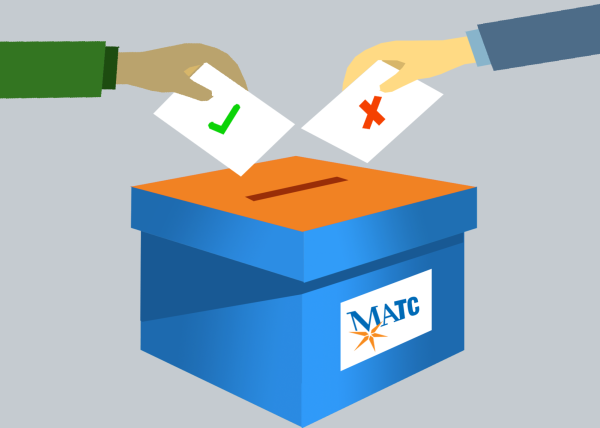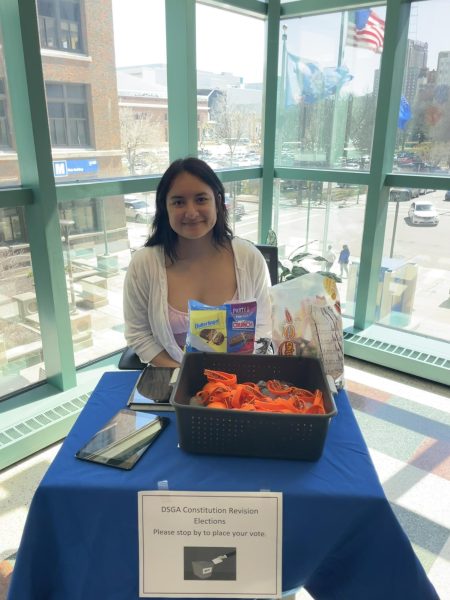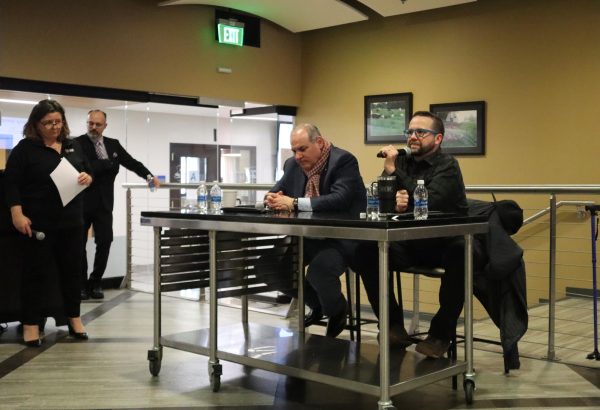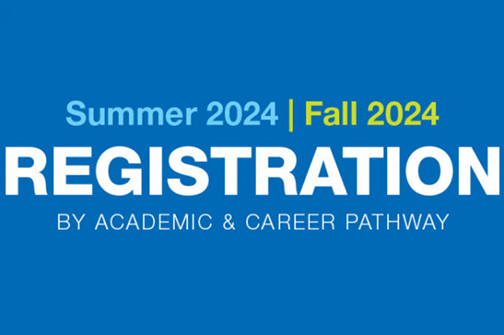Clinic offers free heart scans
Photo by Jose Dehoyos/Times
James Sebastian, CVT-Echo student, shows the dynamics of some of the equipment used.
How’s your heart? Bring it in for a scan at MATC’s Echocardiography Clinic and find out. Free ultrasound heart scans are offered by walk-in or appointment in room M- 480 for MATC students, staff and faculty, to provide Cardiovascular Technology program students with experience related to their future careers.
In this non-invasive procedure, ultrasound technology (utilized most commonly during pregnancies) is used to observe blood flow and physiology of the heart. On top of allowing students to practice their technical and clinical skills in a real-world setting, these free scans can also reveal possible life-threatening conditions.
Michelle Jendrzejek and Denise Mandery, students of the program, said as many as 30% of people have cardiac shunts – a defect that causes abnormal blood flow – which in some cases can lead to complications later in life. Among the other conditions Jendrzejek and Mandery said that echocardiograms could also reveal are weakened valves, which are a significant risk factor for heart failure.
Blood clots, which can be life-threatening, and if left untreated thickened walls, which are indicative of strain on the heart muscles; palpitations; heart murmurs; enlargements; or other defects and abnormalities also can be detected.
Rick Dettman, Cardiovascular Technology instructor, says this procedure could normally cost as much as $2,500. Although most students who go in for a free scan are younger, Dettman says that students doing the scans have been known to catch major defects. “In a training setting we are teaching them protocol,” adding that “when we see little things [in a scan] we encourage people to have a follow-up [with a physician].” Results from an echocardiogram are instantaneous and the whole process takes under an hour.
It stands to reason that the more students who go in for a scan, the more people will be aware of possible life-threatening conditions and risk factors, and the more support their fellow students will receive in the process.
Did I mention that it’s free? As Dettman says, the scans are a win-win situation; “educational, fun, and beneficial for everyone.”
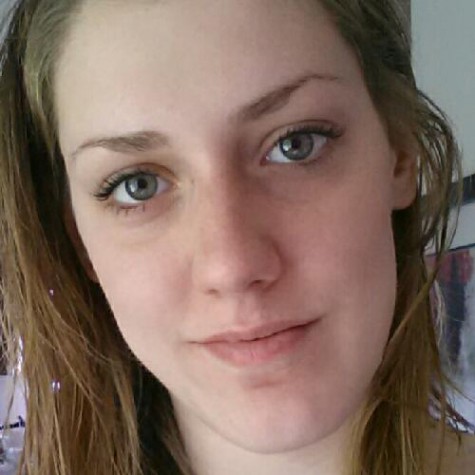
I look forward to using my position as an Editor for the Times to inspire students to become more aware and active participants in their own education....

